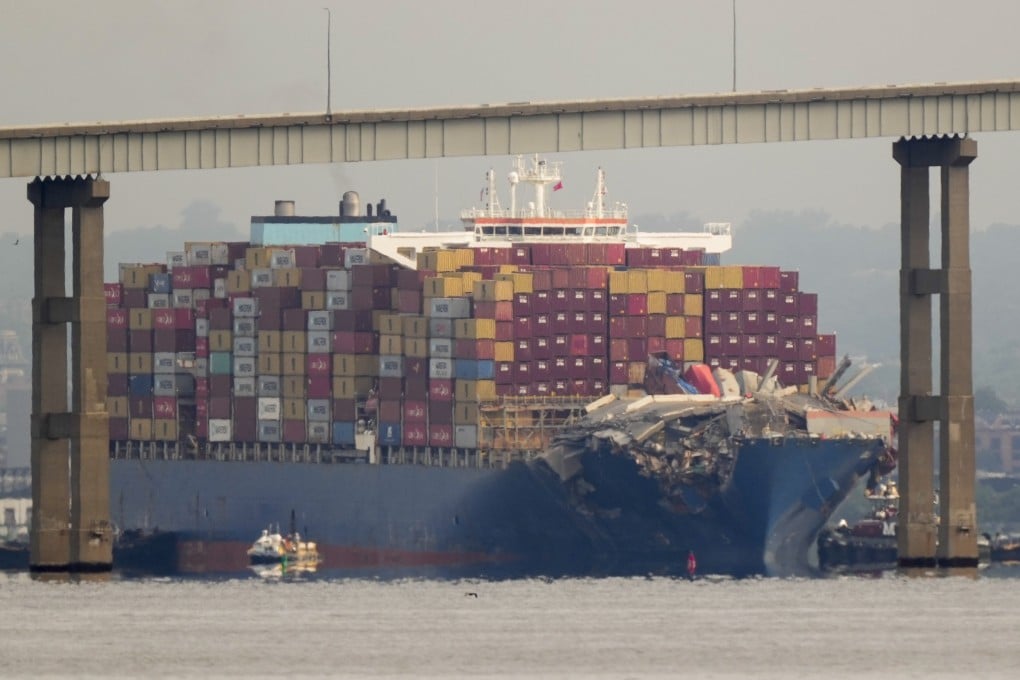Baltimore bridge collapse: crashed Dali ship that caused deadly accident refloated, towed from channel
- The Dali had been grounded at the collapse site for weeks after it lost power and crashed into one of the bridge’s supporting columns on March 26, killing 6
- Officials said the Dali is likely to remain in port for several weeks and undergo temporary repairs before being moved to a shipyard for more substantial repairs

The container ship that caused the deadly collapse of Baltimore’s Francis Scott Key Bridge was refloated at high tide on Monday and began slowly moving back to port, guided by several tugboats.
The Dali had been grounded at the collapse site for weeks after it lost power and crashed into one of the bridge’s supporting columns on March 26, killing six construction workers and halting most maritime traffic through Baltimore’s busy port.
The ship appeared to start moving shortly after 6am as crews began manoeuvring it out of the wreckage. It started and stopped a few times before slowly backing away from the collapse site.
With the hulking cargo ship removed from the mouth of Baltimore’s harbour, a newly opened void appeared in the city’s skyline. The altered waterscape also highlighted the progress made on the clean-up effort, as crews have already removed hundreds of tons of mangled steel from the collapse site.
Officials said the Dali would move at about 1mph on the roughly 4-kilometre (2.5-mile) trip back to port, a fraction of the speed it was travelling when it lost power and brought down the bridge. Pieces of the bridge’s steel trusses protruded from the ship’s bow, which remained covered in mangled concrete from the collapsed roadway.
Officials have said the Dali is likely to remain in the port for several weeks and undergo temporary repairs before being moved to a shipyard for more substantial repairs.
